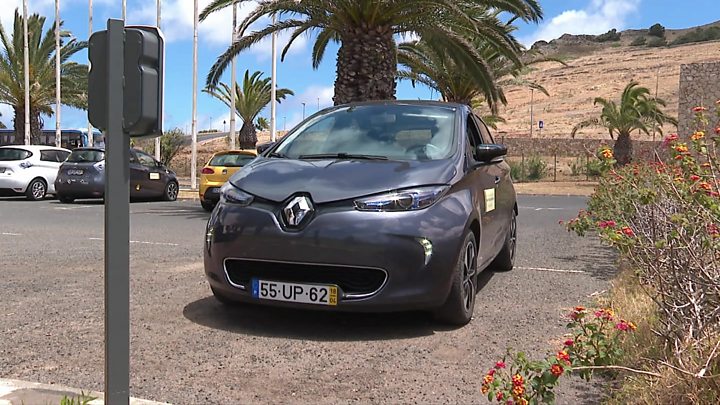For the first time since the Industrial Revolution, Britain is obtaining more power from zero-carbon sources than fossil fuels.
The milestone has been passed for the first five months of 2019.
National Grid says clean energy has nudged ahead with 48% of generation, against 47% for coal and gas.
The rest is biomass burning. The transformation reflects the precipitous decline of coal energy, and a boom from wind and solar.
National Grid says that in the past decade, coal generation will have plunged from 30% to 3%.
Meanwhile, wind power has shot up from 1% to 19%.
Mini-milestones have been passed along the way. In May, for instance, Britain clocked up its first coal-free fortnight and generated record levels of solar power for two consecutive days.
Why does it matter?
The shift is being driven by the need to cut emissions of the greenhouse gases that are over-heating the climate. The electricity sector was seen as the easiest place to start.
John Pettigrew, CEO of National Grid, told BBC News: "Over the last 10 years there’s been real progress in de-carbonisation of the energy system – but 2019 is going to be a key milestone.
"It's the first time since the Industrial Revolution that more electricity has been produced from zero and low-carbon sources rather than fossil fuels. It's tremendously exciting because it's such a tipping point."
National Grid says it is confident to make predictions for Britain's whole year power generation based on figures so far and on historical patterns.
In years to come, more energy storage will be needed as the share of wind and solar energy swells further.
Can cars help with electricity supplies?
Mr Pettigrew told us some of the renewable energy generated when the wind is blowing or the Sun is shining will be stored in the batteries of people's electric cars for use later.
The cars' charging systems will be reversed so their batteries can feed electricity back to the grid when demand peaks – like when people are cooking supper.

Media playback is unsupported on your device
"One of key attributes of electric vehicles is they have a battery and therefore they can be used as a source of energy on to the network," he said.
"We could aggregate all the cars and use that electricity to support the grid when it’s needed. It's going to be a really effective tool for us to keep costs down."
The firm estimates this vehicle-to-grid technology (V2G) could solve 10-15% of the UK's demand for storage.
But it's hard to be confident about projections because autonomous vehicles may disrupt patterns of car usage and ownership.
How much energy will we buy from Europe?
Another way of filling in the gaps in energy when the wind's not blowing is by trading with continental neighbours.
National Grid expects that giant cables from continental Europe will soon supply enough to power eight million homes.
The firm says 63% of electricity imported through interconnectors this year has come from zero-carbon sources – much of it from French nuclear.
The zero-carbon share should increase to 90% by the 2030s as the UK trades more electricity with Norway’s vast hydropower system.
There's still major uncertainty about low-carbon energy, though, with no clarity over nuclear power, and increased expected demand from motorists.
Mr Pettigrew has joined the chorus of critics warning government that the progress of electric vehicles is too slow – and urging much more effort to decarbonise heat.
Has technology cracked the climate problem?
The veteran energy analyst Tom Burke from e3g told BBC News: "Today's landmark is a real tribute to technologists. We have cracked technical problems of dealing with climate change.
"The problems we face are political. As we move towards Net Zero (carbon emissions), jobs will be lost in fossil fuel industries and created in low-carbon industries.
"The government has blown hot and cold on climate policies – and it's shown no sign of thinking about managing the politics of this."
A government White Paper on energy is due soon.
Follow Roger on Twitter @rharrabin
https://www.bbc.com/news/science-environment-48711649
2019-06-21 08:47:34Z
CBMiNWh0dHBzOi8vd3d3LmJiYy5jb20vbmV3cy9zY2llbmNlLWVudmlyb25tZW50LTQ4NzExNjQ50gE5aHR0cHM6Ly93d3cuYmJjLmNvbS9uZXdzL2FtcC9zY2llbmNlLWVudmlyb25tZW50LTQ4NzExNjQ5





